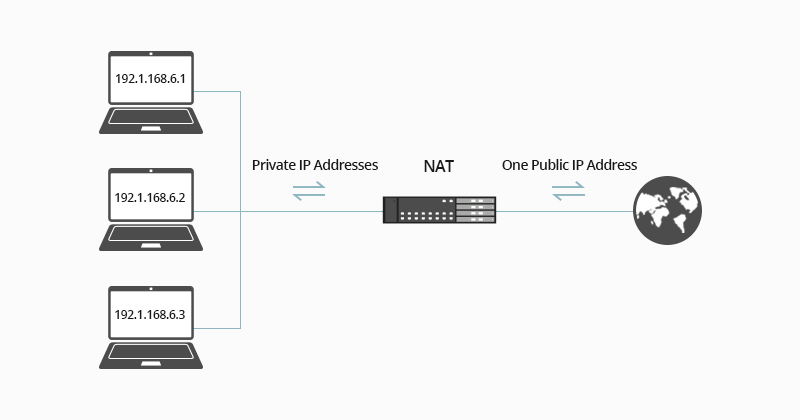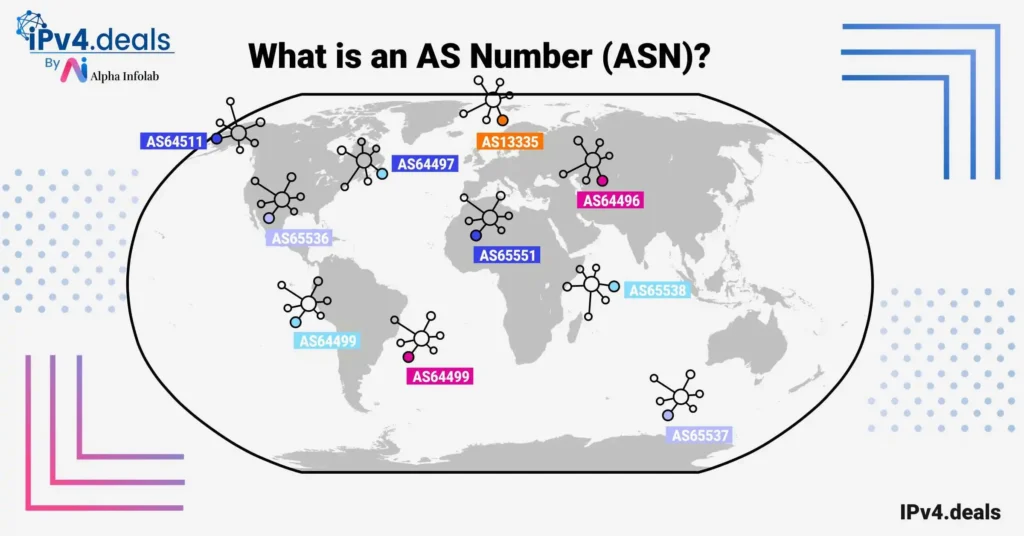Table of Contents
The Battle of IPv4 vs. IPv6
The digital technology world is always changing. A key part of this change is the ongoing competition between Internet Protocol version 4 (IPv4) and Internet Protocol version 6 (IPv6). These protocols are crucial for data transmission over the internet and affect not just gamers, but also developers and network administrators.
Understanding the differences between IPv4 and IPv6 for gaming, their performance characteristics, security features, and overall technological implications, can be a game-changer for optimizing gaming environments. With the increasing prevalence of online gaming, the choice between IPv4 and IPv6 warrants deeper exploration. This understanding will equip gamers and developers with the knowledge to make informed decisions, optimize the gaming experience, and potentially pave the way for new technological innovations within the gaming industry.
This article aims to break down the important differences between IPv4 and IPv6 for gaming, analyze the pros and cons associated with each, and provide valuable insights into their performance in gaming scenarios. Whether you’re a casual gamer, a professional e-sports athlete, or a game developer, it’s crucial to know how IPv4 and IPv6 can impact your online gaming experience. So, let’s understand how Internet Protocols influence the landscape of online gaming.
Online gamers continuously seek strategies to boost their performance, yet the discussion around IPv4 vs IPv6 for gaming often goes overlooked. Let’s dive deeper into it.
Understanding IPv4: The Old Reliable
The Internet Protocol version 4 (IPv4) has long been the backbone of the Internet, providing us with reliable connectivity for decades. As we delve into the world of online gaming, it’s crucial to first gain a thorough understanding of this tried-and-true protocol.
The technology behind IPv4
Conceived in the early days of the internet, IPv4 uses a 32-bit address space, which theoretically provides around 4.3 billion unique addresses. However, due to the protocol’s architecture and certain reserved address space, the actual number of usable addresses dwindles significantly.
IPv4 addresses are typically represented in a format known as “dotted decimal notation” – a series of four numbers separated by periods, each ranging from 0 to 255, such as 192.168.0.1. This numerical system allows for easy human interpretation and management of the addresses.
Performance in gaming
IPv4 has been adopted by the vast majority of modern online games, largely due to its widespread use and compatibility with most devices and networks. From a gaming standpoint, IPv4 proves to be competent. It offers satisfactory speed and responsiveness, ensuring smooth gameplay without significant latency issues in most scenarios.
Security concerns that rely heavily on peer-to-peer networking
It’s worth noting that IPv4, while reliable, was designed at a time when the internet was not as ubiquitous as it is today, and security was not a primary concern. As such, IPv4 does not inherently include robust security features. However, over time, additional security measures like Internet Protocol Security (IPSec) have been developed and can be configured to secure IPv4 communications.
The drawbacks
Despite its longevity and widespread use, IPv4 is not without its share of drawbacks that could potentially affect gaming experiences. A significant issue is the impending depletion of IPv4 addresses. With only about 4.3 billion possible unique addresses and an ever-increasing number of devices connecting to the internet, we are nearing a point where IPv4 addresses may no longer be available.
Moreover, IPv4’s architecture lacks inherent end-to-end connectivity. This limitation means that it often relies on Network Address Translation (NAT) to enable multiple devices to share a single public IP address, which can lead to complications in multiplayer gaming scenarios.
Understanding IPv6: The New Contender
IPv6 is a newer internet protocol. Developed in the late 1990s, it’s gaining popularity as IPv4 addresses are depleting. Despite being relatively new, IPv6 offers technological advancements that could revolutionize online gaming.
The technology behind IPv6
At its core, IPv6 is a major upgrade on its predecessor, IPv4. The most striking difference lies in the address space; IPv6 uses a 128-bit address system, compared to the 32-bit system of IPv4. This augmentation increases the total number of possible IP addresses from a mere 4.3 billion (IPv4) to an almost inconceivable 340 undecillion (IPv6). More IP addresses mean broader connectivity and a more extensive network – a significant advantage in a gaming world that is increasingly global and interconnected.
Moreover, IPv6 incorporates features that were only optional or absent in IPv4, such as mandatory network-layer security, simplified network configuration, and improved support for extensions and options. The implementation of these features was aimed at overcoming the limitations of IPv4 and marks a substantial step-up in technological capability.
Performance in gaming
Gaming can greatly benefit from IPv6 with its expanded IP addresses and better connectivity, allowing for more players and games. The increased number of IP addresses and enhanced connectivity can pave the way for more players, more games, and bigger, more immersive online worlds. In addition, the streamlined header structure of IPv6 can potentially result in faster data transmission, reducing lag and ensuring smoother gameplay.
Direct peer-to-peer connections, made possible by the greater address space of IPv6, can also enhance multiplayer gaming experiences. These connections can bypass the need for central game servers, potentially reducing latency and offering a more responsive and enjoyable gaming experience.
Security concerns
IPv6 incorporates IPsec (Internet Protocol Security), a suite of protocols for securing internet protocol communications by authenticating and encrypting each IP packet in a data stream. While IPsec was available with IPv4, it was not a mandatory feature, and hence, was often overlooked in favor of other security measures. With IPv6, IPsec is an integral part of the protocol, providing a higher baseline level of security.
However, the introduction of IPv6 brings new security challenges. Since IPv6 and IPv4 do not communicate directly, dual-stack implementations (systems that run IPv4 and IPv6 simultaneously) can create vulnerabilities. These systems can be complex to manage and secure, thus opening potential loopholes for malicious activity.
The drawbacks
Despite its technological advancements and promise of a future-proof network, IPv6 does come with its drawbacks. The protocol’s complex, often difficult transition from IPv4 can deter many users and organizations, leading to its slow adoption rate. In addition, while IPv6 addresses the issue of IPv4 address exhaustion, the sheer number of available IPv6 addresses can complicate network management and security.
As it stands, many games and gaming platforms still do not support IPv6, and the ones that do are often not optimized for the protocol. This lack of widespread adoption and optimization can lead to a subpar gaming experience for IPv6 users, despite the protocol’s potential advantages.
Performance comparison: Speed, Latency, and Bandwidth
As we delve into the practical aspects of IPv4 and IPv6 for the gaming world, three critical factors emerge that determine the performance of online gaming: speed, latency, and bandwidth. It is within these areas that we can empirically compare the two protocols.
Speed
In terms of speed, both IPv4 and IPv6 perform comparably in most scenarios. The speed of your internet connection is primarily dependent on your internet service provider (ISP) and the infrastructure they use. However, it’s worth noting that IPv6, with its simplified processing by routers due to its streamlined header structure, has the potential to offer slightly faster speeds in certain situations, though this is usually not noticeable.
Latency
The latency, or delay in data transfer, is another crucial aspect for gamers. High latency leads to a delay in action-response scenarios, making games unplayable. IPv6 was designed to reduce latency by streamlining the routing process with simpler packet headers. However, in practice, many users report no noticeable differences in latency between IPv4 and IPv6. This is largely because the impact of the routing process on overall latency is minimal compared to other factors such as physical distance to the server and the quality of your ISP’s network.
Bandwidth
Bandwidth, the maximum rate of data transfer, is a critical component of online gaming, particularly for games that rely heavily on real-time interactions. Here, IPv6 shines due to its virtually unlimited address capacity. Some argue that the transition to IPv6 could reduce congestion on networks, leading to increased bandwidth. However, in practice, as with speed and latency, your bandwidth is primarily determined by your ISP and their network infrastructure.
Overall, it’s clear that while the technological features of IPv6 have the potential to offer superior speed, latency, and bandwidth, the real-world impact for gamers is currently minimal. This is largely due to the fact that the performance of online gaming is heavily influenced by factors outside the control of the network protocol, such as your ISP’s infrastructure and the physical distance to the gaming server.
In conclusion, there is no definitive winner in the IPv4 versus IPv6 gaming performance debate. Both protocols have their strengths and weaknesses, and the choice between them should be based on the specific needs and circumstances of each gamer. However, as the transition towards IPv6 continues, it’s possible that the advantages of IPv6 in terms of performance may become more evident in the future.
The future of gaming: IPv4 or IPv6?
The decision to use IPv4 or IPv6 for gaming is not a simple one. It’s not a matter of declaring one as the definitive champion over the other. Rather, it’s about weighing the potential benefits and drawbacks of each in relation to a gamer’s specific requirements and the game developers’ objectives.
The primary strength of IPv4 lies in its widespread adoption and compatibility. On the other hand, IPv6, with its advanced features such as better security protocols and improved addressing capacity, promises to provide a more robust and efficient gaming experience in the long run. However, the adoption of IPv6 has been slower than anticipated.
While the debate continues, one thing is certain: The internet is gradually transitioning towards IPv6. As more games and systems begin to leverage the capabilities of IPv6, the benefits may become more apparent, particularly in terms of performance and security.
For now, gamers and developers must make informed decisions based on their specific needs and circumstances. The best course of action is to stay informed about the latest developments in this field and understand the implications of these changes for your gaming experience.
In the grand scheme of things, both IPv4 and IPv6 have their roles to play. As the gaming industry continues to evolve, so too will the role and relevance of these internet protocols. After all, in the dynamic world of online gaming, the only constant is change.
Optimizing Your Gaming Experience: Testing IPv4 vs. IPv6 Ping
Let’s break down how you can check and improve your gaming speed, focusing on something called “ping” and comparing IPv4 and IPv6.
So, what’s ping? It’s like a speedometer for your game’s internet connection. A low ping means your game talks fast with the server, making everything smooth. High ping? That’s like being stuck in traffic.
Here’s how you figure out where the issue might be and see if IPv4 or IPv6 works better for your gaming:
- Find Your Game’s Ping
- First, you need to see how fast your game is running. Many online games show your ping right in the game. You can also use a simple command on your computer to check it.
- On a Windows PC, Do This
- Press the Windows key + R, type “cmd”, and hit Enter to open a command prompt.
- If you’re not sure what your game server’s address is, make sure you close any other program that uses the internet except for your game.
- Then type “netstat -n” and press Enter. This shows you all the internet connections your computer is making. If you’ve closed other programs, the game server should be easy to spot.
- Now, type “ping” followed by the game server’s address, and press Enter. For example, “ping gamingserver.com” or “ping 74.91.125.251”.
- A test will run, and you’ll see how long (in milliseconds) it takes for data to go from your computer to the server and back. Less time is better.
- Compare IPv4 vs IPv6
- Do these steps once with IPv4 and once with IPv6 to see which one gives you a lower ping. That’s the better option for your game.
- Check Your Internet Speed
- You can also use websites like SpeedTest.net to check your overall internet speed, including ping. This doesn’t directly tell you about your gaming server but gives a good idea if IPv6 is running smoothly on your setup.
Remember, the goal is to get a low ping for smoother gaming. By comparing IPv4 and IPv6, you can figure out which one gives you that edge.
Frequently Asked Questions
What is the significance of the battle between IPv4 and IPv6 for gamers?
The competition between Internet Protocol version 4 (IPv4) and Internet Protocol version 6 (IPv6) plays a crucial role in data transmission over the internet. This affects not only gamers but also developers and network administrators. The choice between IPv4 and IPv6 can impact the optimization of gaming environments.
How does IPv4 impact the gaming experience?
IPv4 has been widely adopted by most modern online games due to its compatibility with most devices and networks. It offers satisfactory speed and responsiveness, ensuring smooth gameplay without significant latency issues in most scenarios. However, IPv4 was designed when the internet was not as prevalent, and security was not a primary concern. Over time, additional security measures like Internet Protocol Security (IPSec) have been developed for IPv4.
What are the advantages of IPv6 in the context of gaming?
IPv6 offers an expanded IP address space and better connectivity, allowing for more players and games. The streamlined header structure of IPv6 can result in faster data transmission, reducing lag and ensuring smoother gameplay. Direct peer-to-peer connections made possible by IPv6’s greater address space can enhance multiplayer gaming experiences by bypassing the need for central game servers.





